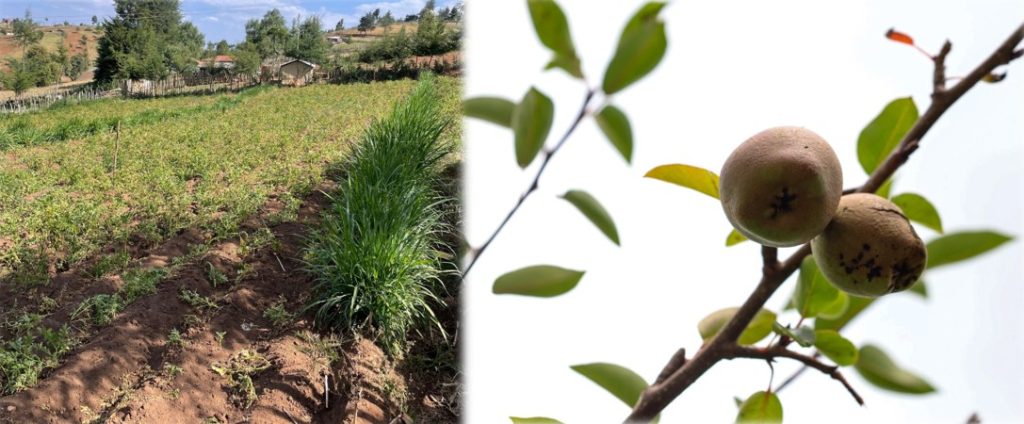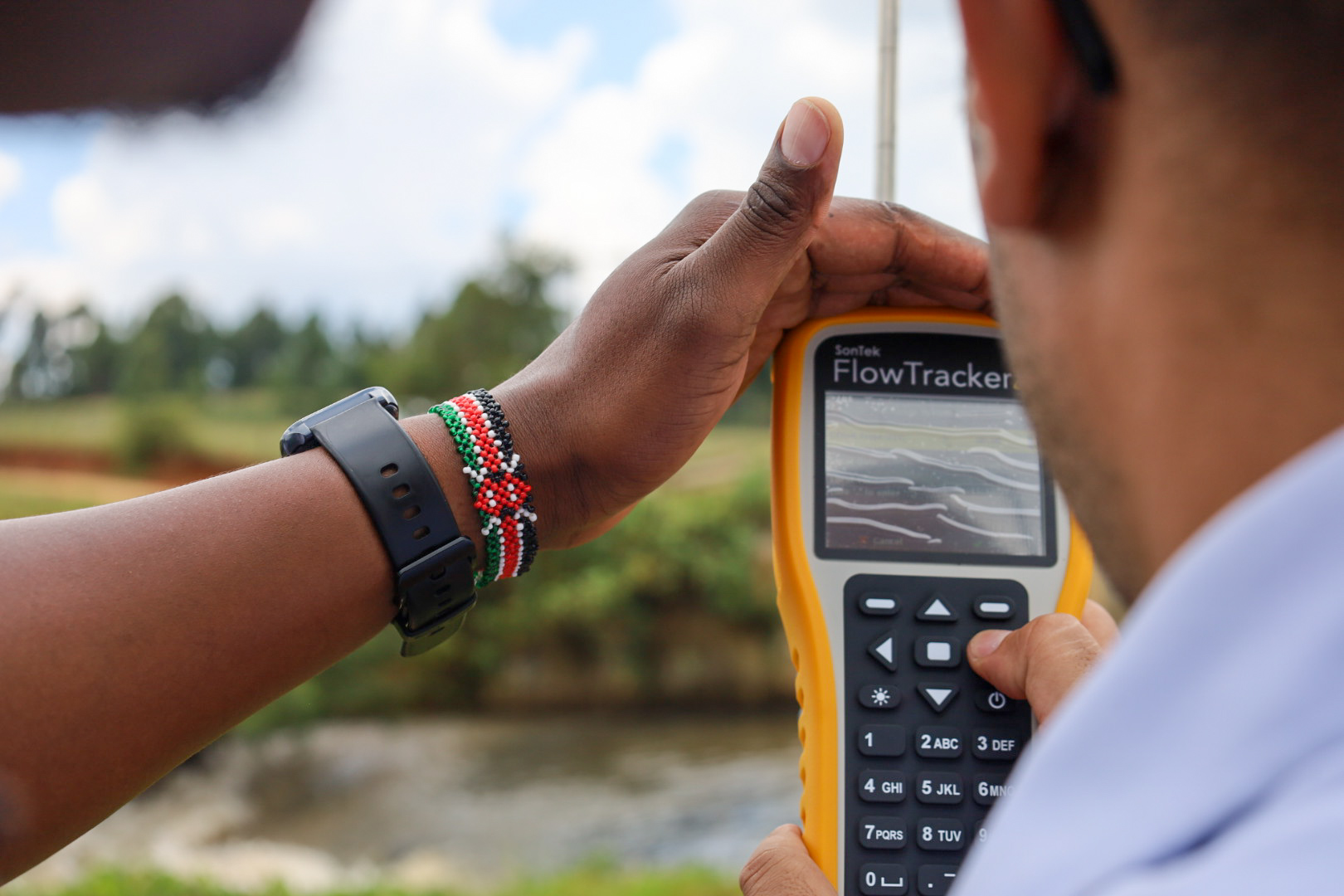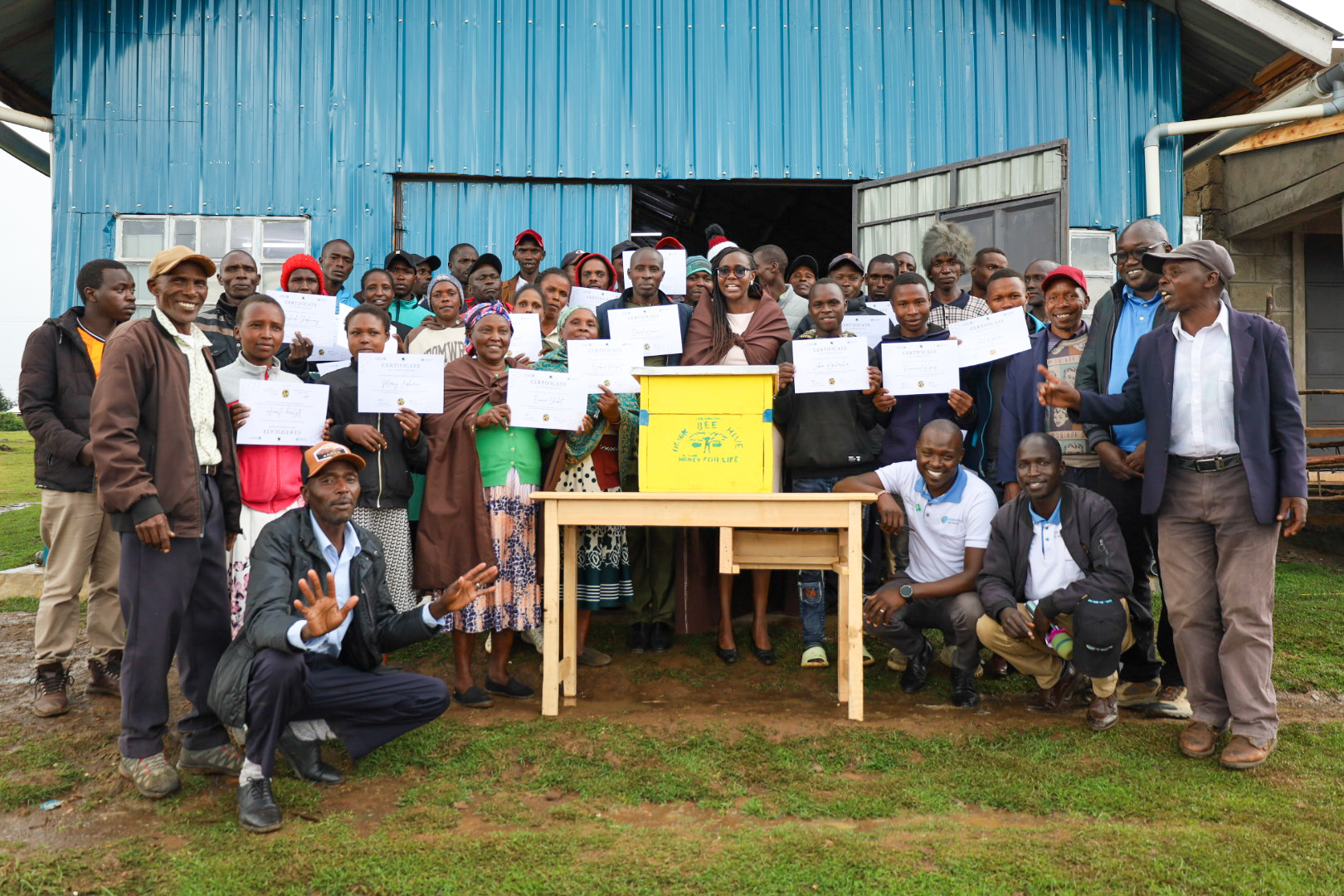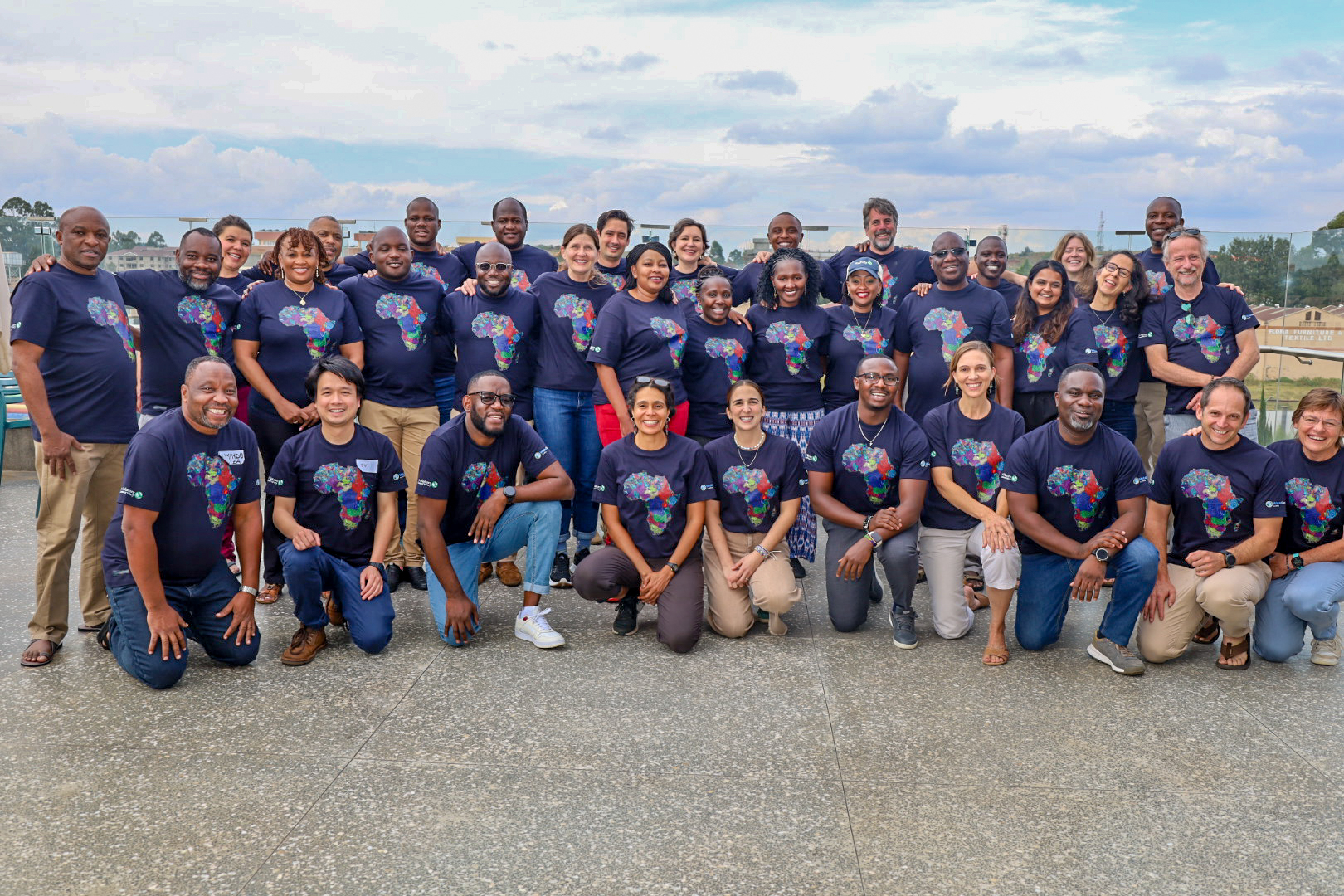Story by Faith Esika
Along the winding tarmacked road that climbs through Kimnai, a village tucked into the breathtaking Cherangani
Hills landscape, sits a farm that once bore the weight of every storm. Perched on a slope just off the roadside, Lydia’s farm is thriving, its beauty masking the struggle that once marked the farm for years. Each time the rains fell, torrents of runoff from the road above would tear through her farm, carrying away her fertile soil and crops. The stormwater had turned her farm into a passage for destruction. Her maize crops struggled under the chocking shade of Cypress trees and without adequate water storage and erosion control, Lydia’s hope was slipping through the cracks along with her soil.
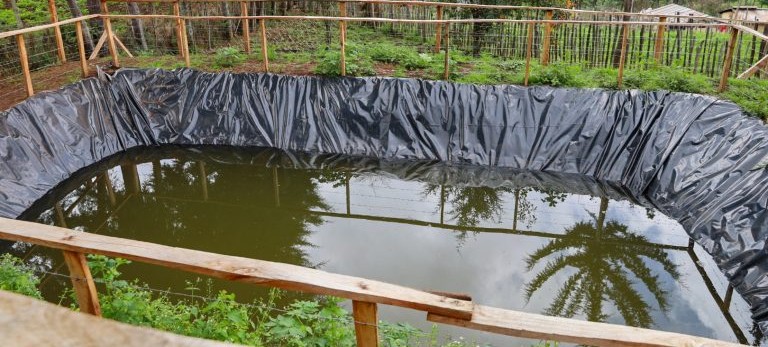
The struggle however did not end on her farm. Inside her kitchen, a traditional jiko burned inefficiently, consuming nearly 10 pieces of firewood for a single meal, filing her kitchen with smoke and forcing her to spend more time and energy just to prepare food for her household. Lydia knew something had to change, and she was determined to make this change happen. When the Eldoret-Iten Water Fund (EIWF) introduced nature-based interventions in her area, Lydia embraced them, not all at once, but step by step.
Her first step was to transform water from an enemy into an ally. With support from the EIWF, Lydia excavated a 50,000L capacity water pan that allows her to collect surface runoff and harvest rainwater. The results were almost immediate, with water now working for instead of against her, Lydia’s crops flourished. Her maize and potatoes now stood a chance of survival whether it rained or shined. Encouraged by this success, Lydia installed a second water pan of similar capacity, securing even more access to irrigation. On her farm, she began reclaiming her maize fields by phasing out the Cypress trees and replacing them with Grevillea trees, a species promoted by the EIWF for their agroforestry compatibility.
To further protect her soil and the river below her farm, Lydia planted grass strips across sections of her farm, stabilizing them with Super Napier grass, a fast growing and protein rich Napier variety issued by the water fund. Today, these simple bands of vegetation serve as powerful shields against erosion, holding back the soil that once once washed away and improving water retention. The Super Napier grass has been a transformative supplement to her livestock feed which she now harvests up to six times a year.
With technical guidance from the EIWF technical assistants, Lydia began grafting pears with apple varieties. This innovation is now bearing fruit literally and income wise. “The fruit trees are very productive, in a good harvest, a 50Kg bag goes for Ksh. 6,500” Lydia says with a smile. What began as a few pear trees has evolved into a flourishing orchard. Inside her kitchen, transformation has also taken root. She now uses an improved cook stove, supported by the EIWF, which is energy efficient as it uses less firewood, cooks faster, less
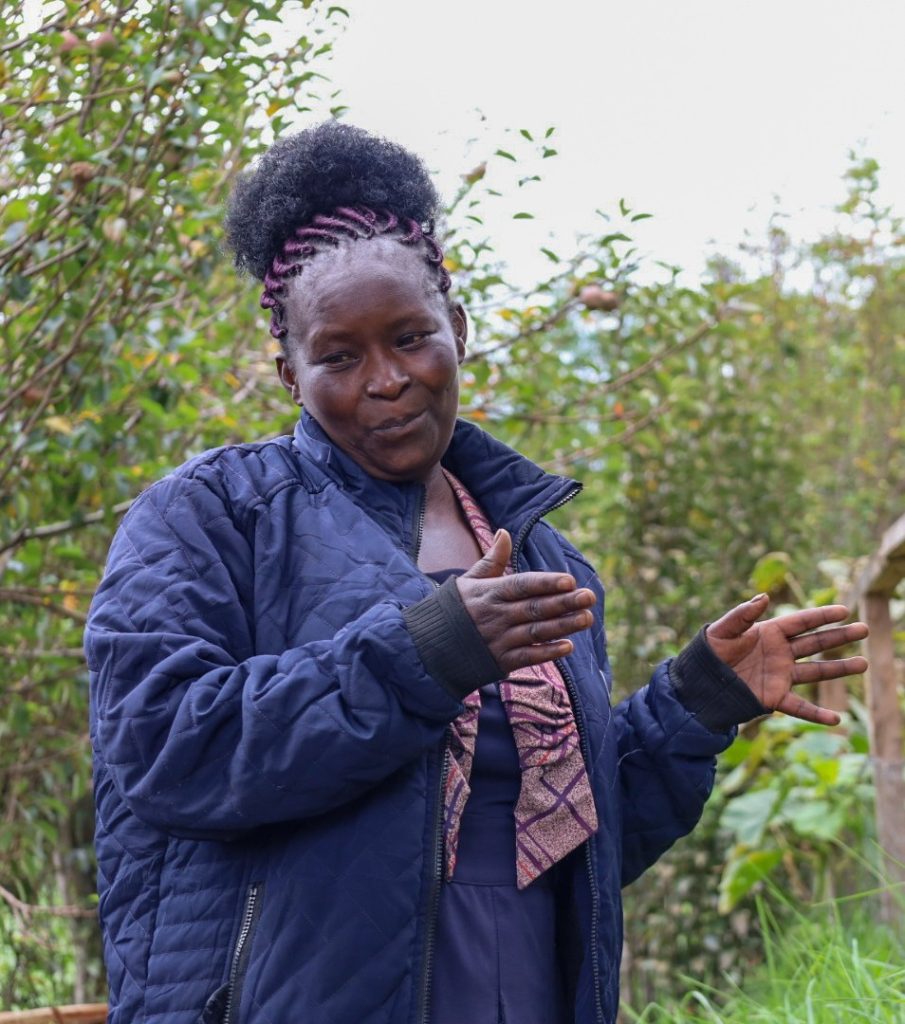
smoky and retains heat, allowing Lydia to preserve her food without reheating.. A welcome relief from the smoke-filled and firewood sourcing days of the past. Lydia’s journey is a testament to how small, well planned Nature-based Solutions can lead to transformative change. Through the support of the Eldoret-Iten Water Fund, Lydia is not only securing her future, but also serving as an inspiration to other farmers in her community.
